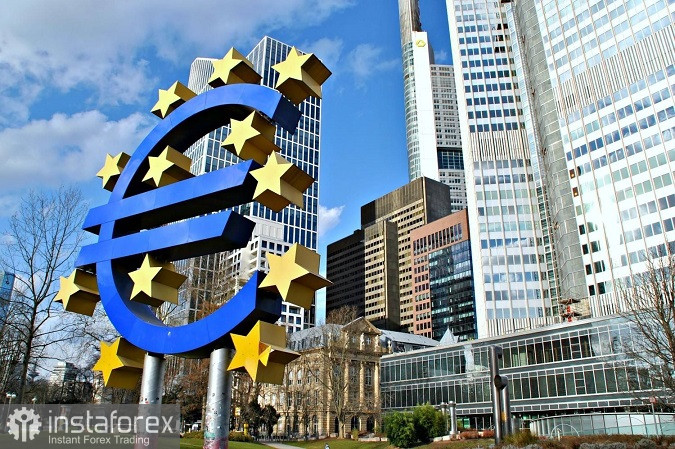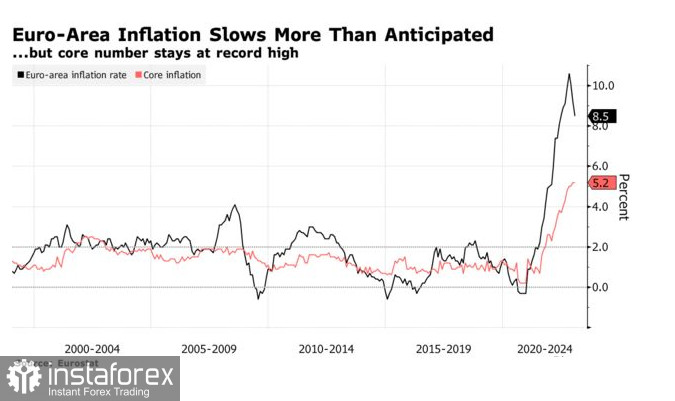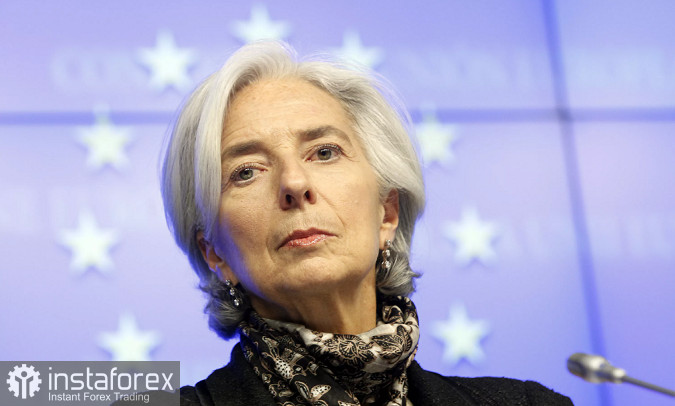
Inflation in the eurozone fell short of earlier forecasts, highlighting the intense debate in the European Central Bank on the peak interest rate.
According to the latest data by Eurostat, which was published on Wednesday, inflation hit 8.5% in January, falling for a third straight month in a row. Economists expected price growth to reach 8.9%.
Inflation fell thanks to lower energy prices, as core CPI, which excludes volatile food and energy prices, remains at a record high of 5.2%.

The data may reassure more dovish ECB officials, who increasingly insist on easing the pace of rate hikes after an expected half-point hike on Thursday.
They could highlight the decline in natural gas prices amid a mild winter, expectations of a similar rate cut by the Federal Reserve, and the Bank of Canada pausing its monetary tightening cycle.
Eurostat estimated inflation data for Germany, which has been delayed to next week by Destatis.
More hawkish ECB officials are concerned about wage growth and have focused on high core inflation. ECB President Christine Lagarde warned in December that there was good reason to believe that inflation rates could surge in the first two months of 2023.
EUR/USD continues to climb and is ready to hit a new yearly high:

A more favorable economic backdrop could intensify price pressures. This week's data suggests that the eurozone economy will avoid recession, while the manufacturing sector is recovering. Unemployment remained at record lows in December.
Uncertainty about inflation has already increased because of year-to-year calculation adjustments, as well as changes to energy subsidies used by governments to shield households and firms from rising energy prices amid the Russia-Ukraine conflict.
The picture became even murkier when Destatis said they could not release inflation data for January on schedule this week due to technical problems. Instead, Eurostat was forced to make its own assessment of inflation in the Europe's largest economy, although it did not release it.
Aggregate data indicated that economic growth in Germany had slowed dramatically, even though analysts predicted an increase before the release was postponed. The final Eurostat inflation data will be released on Feb. 23.

The effects of the most aggressive tightening cycle in ECB history are unlikely to be fully visible before the second half of 2023. Markets this week will focus on Lagarde and her outlook for the March meeting and beyond.
The ECB is likely to raise the rate by 50 basis points in February and March. It might then hike the rate by 25 basis points in May. A survey of economists suggested the deposit rate could peak at 3.25% compared to its current level of 2%.
At the World Economic Forum in Davos in January, Christine Lagarde stated that ECB officials would maintain the current policy course to timely bring inflation to the target level of 2%.
 English
English 
 Русский
Русский Bahasa Indonesia
Bahasa Indonesia Bahasa Malay
Bahasa Malay ไทย
ไทย Español
Español Deutsch
Deutsch Български
Български Français
Français Tiếng Việt
Tiếng Việt 中文
中文 বাংলা
বাংলা हिन्दी
हिन्दी Čeština
Čeština Українська
Українська Română
Română

